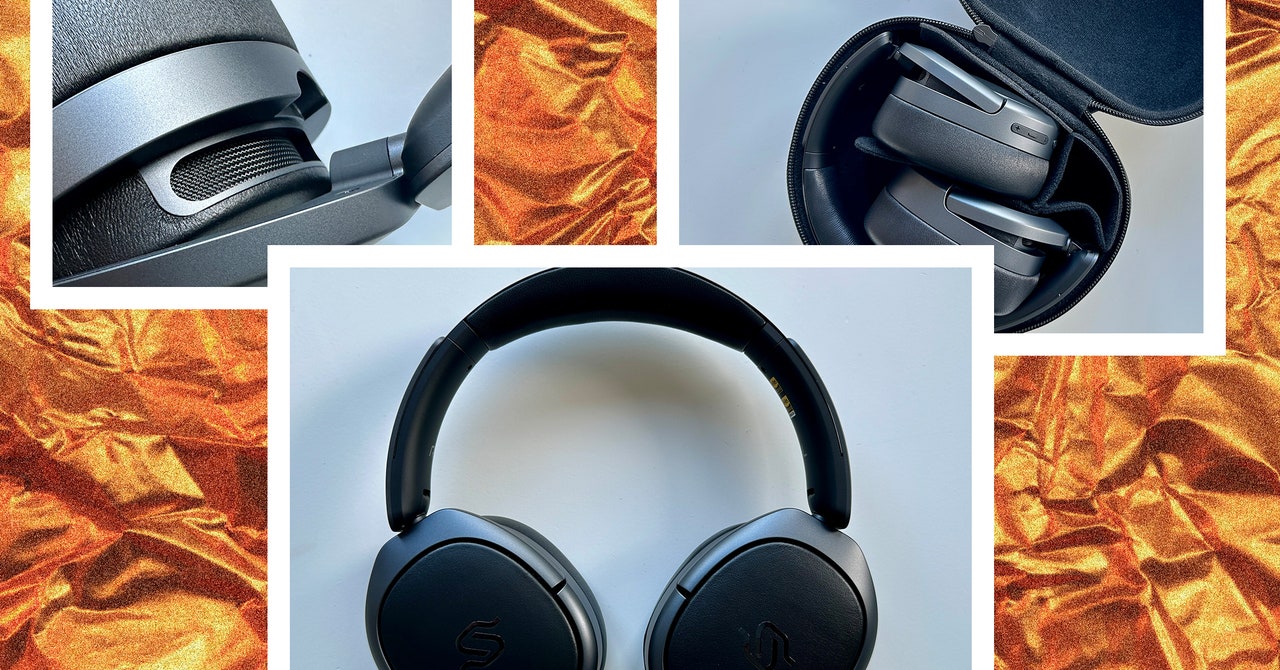Sports cars tend to be less common, and more aspirational, than SUVs or people-carriers. Headphones with planar magnetic drivers tend to be less common, and more aspirational, than headphones with dynamic drivers. In some ways, the reasons for this are very similar. Planar magnetic drivers, which use thin pieces of metal held between magnets—are a bit like sports cars: They’re designed for uncompromised performance. Like sports cars, they’re also trickier, more expensive, and more time-consuming to produce. They tend to make the headphones that feature them bigger and bulkier than the dynamic driver alternative, which is the only place where my clever sports car/SUV analogy rolls into a wall.
The broad point still stands. Planar magnetic drivers tend to be the preserve of specialist brands and tend to be fitted to headphones costing a great deal more than those alternative designs that feature dynamic drivers. But no one, it seems, has mentioned any of this to Edifier.
Edifier was established in Beijing in 1996 and hit the ground running where loudspeakers and headphones are concerned. By 2012 it had wholly acquired the venerated Japanese headphone brand Stax, which, in terms of prestige, is a bit like the time Fiat acquired Ferrari. (I promise, this will be the last of my auto industry comparisons.) Now Edifier has launched a new pair of wireless over-ear planar magnetic headphones called the Stax Spirit S5 that are no bigger or more expensive than some of the leading dynamic driver designs. They’re fantastic headphones that bring music and films to life better than dynamic drivers can, and they are well worth considering for audiophiles who may otherwise have purchased wired headphones.
That’s the Spirit
The Stax Spirit S5 are not, it’s worth noting, Edifier’s first affordable planar magnetic headphones to go wireless. Where pricing and specs are concerned, with one notable exception, it’s hard to dispute that they’re the company’s most ambitious.
So yes, planar magnetic drivers: Unlike the far more common dynamic driver alternative, which produce sound via a conical diaphragm driven by a voice coil within a magnetic field, planar magnetic drivers use a tremendously thin, flat diaphragm with implanted wires. It’s suspended in a gap between two magnets that vibrate the diaphragm to produce sound. The magnets need to be big enough to cover the entire surface area of the diaphragm, which is why this type of design tends to be bigger and heavier than the dynamic alternative. It’s a more power-hungry arrangement too.
Photograph: Simon Lucas
In the case of the Stax Spirit S5, the diaphragm is a mere 2 microns thick and is embedded with the second generation of Edifier’s “EqualMass” wiring. By connecting different numbers of wires of the same width in a symmetrical structure, uniform driving force can be achieved; the diaphragm will move back and forth with the same momentum across its entire surface, keeping distortion to a bare minimum.
The esoteric nature of their drivers aside, the Edifier Stax Spirit S5 feature most of what the market tends to demand at the price. They use Bluetooth 5.4 for wireless connectivity, and thanks to the Qualcomm QCC5181 SoC they have codec support up to and including LHDC, LDAC, and aptX Lossless. With an appropriate source of music, they can deliver a lossless 16-bit/44.1-kHz resolution, as well as “lossy” 24-bit/96-kHz. AptX Voice is onboard in an effort to deliver optimal call quality, and multipoint connectivity is available for the multitaskers among us.
Battery life is a very impressive 80 hours from a single charge, and if you’re negligent enough to run out of power, a 15-minute pit stop will hold you for another whopping 13 hours. If you’ve an Android device running Marshmallow or newer, Google Fast Pair is available.
The USB-C socket on the right ear cup can be used for data transfer as well as charging the battery, and there’s a 3.5-mm input on the left ear cup for the same hard-wired purpose. Edifier provides both cables in the S5 packaging.

